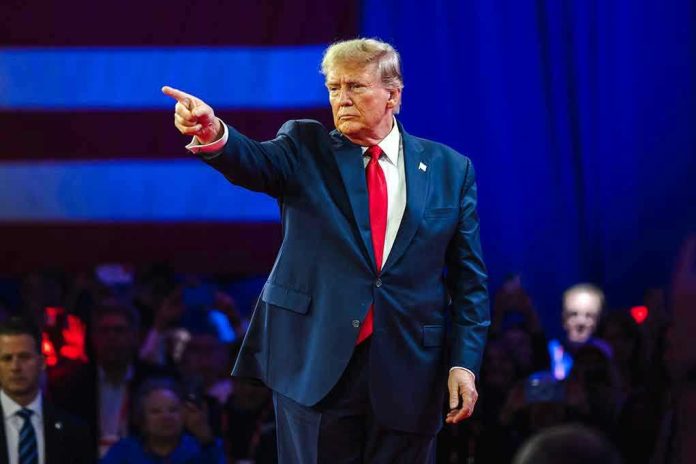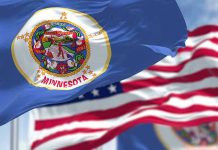
Federal authorities are forcing banks to reverse years of politically motivated account closures—finally confronting the weaponization of America’s financial system against conservatives and controversial industries.
Story Snapshot
- The SBA has ordered all lenders to comply with President Trump’s Fair Banking Executive Order by December 5, 2025, targeting “politicized or unlawful debanking.”
- Banks must notify and reinstate clients previously denied services for non-financial or political reasons, with strict compliance and reporting deadlines.
- This marks the first major federal crackdown on viewpoint discrimination in banking, with potential DOJ enforcement for non-compliance.
- Regulators are eliminating “reputation risk” from official guidance, signaling a shift away from practices that enabled debanking of lawful businesses and individuals.
Trump Administration Orders End to Politicized Debanking
President Trump’s Fair Banking Executive Order, issued in August 2025, represents the centerpiece of an aggressive federal campaign to eliminate “debanking” on political or ideological grounds. The Small Business Administration (SBA) followed by mandating that all lenders under its jurisdiction identify, notify, and reinstate clients who were denied financial services for reasons unrelated to financial risk—such as political affiliation, industry type, or public controversy. This move directly confronts a trend where lawful businesses and individuals, especially those aligned with conservative causes or industries like firearms, were systematically targeted and denied access to the banking system.
Under the new directive, lenders must complete internal reviews, notify affected clients, and restore access to financial services by December 5, 2025. Any institution found non-compliant faces potential enforcement from the Department of Justice. The SBA’s requirements also include a formal report of compliance, due by January 5, 2026, with supporting evidence that all remediations and notifications have been completed. These steps aim to provide redress for past debanking incidents and reestablish a standard of merit-based, apolitical banking—directly responding to years of complaints about regulatory overreach and bias against conservative sectors.
Regulatory Overhaul: “Reputation Risk” and Federal Guidance
The Trump administration’s order extends beyond immediate remediation, demanding a fundamental change in how risk is evaluated by the financial sector. By February 2026, federal banking regulators—including the FDIC, OCC, and Federal Reserve—must remove “reputation risk” as a justification for denying or terminating banking relationships. This term had been widely used to justify exclusion of customers based on perceived controversy or public relations concerns, often targeting gun manufacturers, political groups, and other lawful but disfavored industries. The new policy underscores a shift away from subjective standards and toward clear, legally defined criteria for banking access.
Legal analysts emphasize the unprecedented scope and complexity of this regulatory overhaul. Lenders are required not only to change their internal policies but also to document every step of their compliance process. Advocacy organizations, particularly those representing industries previously targeted by debanking, have praised the move as a necessary defense against viewpoint discrimination and an affirmation of constitutional protections—especially for free speech and lawful commerce. Banking industry groups, meanwhile, have expressed concern over increased compliance burdens and the risk of legal challenges arising from conflicting regulatory expectations.
Historical Roots: From Operation Choke Point to Federal Action
The issue of politicized debanking has deep roots, dating back at least to Operation Choke Point (2013–2017), when federal agencies pressured banks to sever ties with industries deemed high-risk, such as firearms dealers and payday lenders. Critics argued that these efforts, often under the guise of “reputation risk,” amounted to government-sponsored discrimination against lawful businesses. Lawsuits and congressional hearings throughout the 2010s and 2020s highlighted the lack of transparency and due process for those targeted. President Trump’s 2025 executive order, and the SBA’s enforcement actions, mark the first comprehensive federal response to these longstanding grievances.
For many conservative Americans, the new rules represent a long-overdue correction to years of left-leaning regulatory overreach and an explicit affirmation of constitutional and economic freedoms. The administration’s strategy also reflects a broader rejection of “woke capitalism”—the practice of using corporate or regulatory power to enforce progressive social agendas. By demanding objective, merit-based standards in banking, the order seeks to restore trust and fairness to an essential part of American economic life.
Practical Implications and Future Outlook
In the short term, banks and other lenders face significant operational challenges as they review past decisions, notify affected clients, and overhaul compliance systems. Small businesses and individuals previously debanked for non-financial reasons may see their accounts and services restored, potentially revitalizing entire sectors that have struggled under discriminatory practices. In the longer run, the regulatory changes could reduce the risk of arbitrary exclusion from financial services, promote greater transparency, and set new precedents for federal oversight of the banking sector. However, the complexity of implementation and the possibility of legal disputes mean that the full impact will continue to unfold throughout 2026 and beyond.
SBA orders banks to comply with Trump debanking executive order by December deadline https://t.co/eBsUsM6wOI
— FOX Business (@FoxBusiness) August 27, 2025
Supporters argue that these reforms are essential to protecting constitutional rights and economic opportunity for all Americans, regardless of political viewpoint or industry. Critics, however, warn that removing “reputation risk” from regulatory guidance could undermine legitimate efforts to manage financial crime and other risks. As the compliance deadline approaches, the nation will watch closely to see whether the administration’s bold intervention delivers on its promise to end politicized debanking once and for all.
Sources:
President Trump Issues Executive Order on Fair Banking
Executive Order Targets Politicized Financial Services
SBA orders banks to comply with Trump debanking executive order by December 5 deadline
Executive Order Targets Debanking
Administration Issues Executive Order on Discriminatory Debanking













